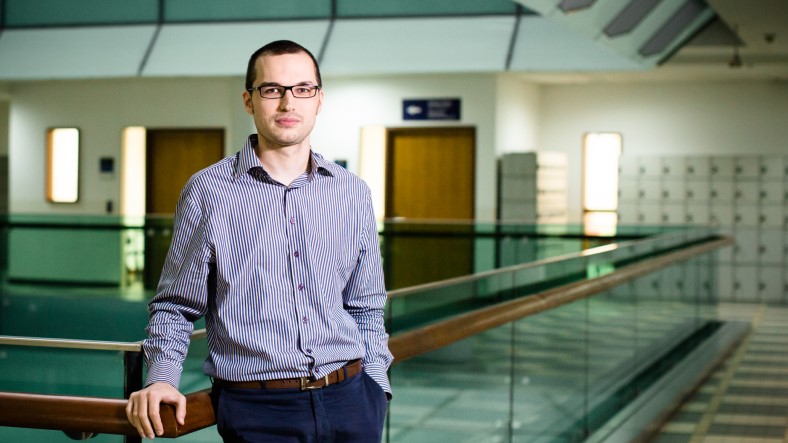
The Covid-19 pandemic has devastated countries and individuals around the world. Lives were lost, plans were put on hold, milestones were celebrated in isolation, and a shared sense of loneliness and despair has rippled across the globe. But, as much as we have taken to social media to lament our circumstances — and share our Circuit Breaker baking accomplishments, we have most certainly not suffered equally as a community.
When both the rich and the less privileged had to undergo lockdowns and fell ill last year, regardless of social-economic statuses, many thought that Covid-19 would serve as a much-needed equaliser. But as the crisis quickly unfolded, deep inequalities within our society were brought to light: According to a survey by UK-based charity for children Save the Children, three in four households suffered declining income since the start of the pandemic, with 82 per cent of poorer households affected. Over 2 million households in the US also claimed they had insufficient food since the start of the pandemic.
While we as individuals have a part to play in helping to fight this burgeoning inequality, exacerbated by Covid-19, a 2020 research paper, Corona crisis and inequality: Why management research needs a societal turn, examines how organisations too can play a powerful role in making meaningful change, by pivoting existing practices.
Co-written by SMU Lee Kong Chian Fellow and Professor of Strategic Management Gokhan Ertug, the paper shares how practices like corporate social responsibility (CSR), work design, recruitment and selection, and compensation management can contribute to the normalisation, reinforcement, and reduction of economic inequalities in society. The writers hope that management scholars may delve deeper into such issues causing societal disparities, and for organisations to acknowledge their culpability in widening the socioeconomic chasm — highlighted by Covid-19.

Importance of corporate social responsibility
According to a 2020 poll conducted by the National Volunteer and Philanthropy Centre (NVPC), there were fewer donations made by Singaporeans during an economic slowdown, with some charities suffering and even ceasing operations to divert funds into their programmes. The pandemic has also put corporate giving to the test, as some business leaders may regard CSR a luxury that they could not afford in a time of crisis.
But certain organisations have upped their corporate social responsibility strategies, with many donating masks to hospitals and citizens to help them deal with the shortage of protective equipment. However, the study questions the extent to which such efforts are lauded, in the context of the size and capacity of the organisation — and what more an organisation could do beyond merely utilising CSR as a convenient public relations exercise.
Instead, its researchers urge a deeper look into the practices of companies that may, conversely, propagate social inequality. For example, companies that have been practising corporate tax manoeuvres may hamper governments from investing in health infrastructure and the social security nets that are essential during a health and economic crisis. As one tweeter remarked sarcastically: “Let’s all celebrate the altruism of Apple, which is worth $1 trillion, avoided $40 billion in taxes, and moved $250 billion to Jersey, a tiny tax haven island”.
Recognising the rise of job inequalities
The pandemic has also shed light on job inequalities, and the varying effects on individuals depending on the type of jobs they hold. Such positions include frontline healthcare workers who are faced with increased exposure to the virus; essential workers who may not be in healthcare, like transportation workers, who nonetheless face greater exposure and little protection; contract workers who are undertaking jobs like sanitation and do not have adequate protective gear; and gig workers who do not have access to social security and healthcare benefits.
The job roles of such essential workers lack the safety, flexibility, freedom and stability of other more “elite” occupations — some of which could be performed in the safety of one’s home. However, essential work is often regarded by organisations as dispensible, and come with little employment rights and security. Such work is also usually performed by individuals who already fall in a precarious income group, with no safety net in terms of economic assistance or healthcare options if they lose their jobs or fall ill.
More can be done by organisations to address these injustices. For a start, companies and society, in general, need to refrain from normalising such job inequalities, such as by “framing less secure jobs as desirable for their similarities with the elite jobs”. Management researchers may also investigate the types of work, employment casualisation, social mobility, and diversity management — and how these issues are also intertwined with the nature of the groups of individuals who occupy the elite and nonelite jobs, which may stem from traditional recruitment and selection practices.
Identifying bias in recruitment and selection
Class inequality is just one injustice brought to the forefront by the ongoing pandemic. Across the world, racial discrimination and hate crimes have spiked, with a rise in racism faced by individuals with an Asian appearance. Furthermore, there has been a higher incidence of deaths among Hispanic or Latino, non-Hispanic Black, and non-Hispanic American Indian or Alaska Native people who have died from Covid-19 than the percentage of these racial and ethnic groups among the total US population.
Also noteworthy is the majority presence of women in frontline jobs as well as the fact that all of the first 10 doctors in the UK who died treating Covid-19 patients being Black and ethnic minorities. While seemingly unrelated, these demographic inequalities might reflect the “recruitment and selection practices of organisations that advantage candidates with demographic privilege and disadvantage the underprivileged”. The disproportionate deaths of non-White medical workers in the UK, for one, might stem from negative treatment like bullying, incivility, and assignment of risky wards/shifts
Even at the point of job advertisements, organisations may discourage applications from female candidates due to the use of more masculine wording. Unfortunately, certain measures taken by organisations to reduce sociodemographic inequalities may also amplify disparities — in some instances by recruiting the less advantaged but enforcing a ceiling effect to prevent their progression. Further study into the recruitment practices of organisations may be a useful first step in recoginising prejudices and discriminations, before rectifying the rise in racial and gender discrimination in the workplace.
Examining compensation management
It is no secret that many lower-level employees do not receive critical nonfinancial compensation, such as health insurance or sick leaves. For example, only 30 per cent of the bottom 10 per cent wage earners in the US.have paid sick leave benefits, compared to 93 per cent of the top 10 per cent earners. This is especially dire a problem in the midst of Covid-19, as those with lower socioeconomic status have higher rates of chronic health conditions, which in turn increases the risk of serious complications from coronavirus infection. Due to a lack of access to health coverage, and the increased risk of exposure arising from the nature of their jobs, the act of falling ill has much more severe repercussions on lower-income individuals than others.
Moreover, the widely adopted pay-for-performance scheme, whereby compensation is pegged to targets set by management, also plays a part in contributing to higher levels of income inequality. Such schemes are subjective in nature and may reinforce and reflect existing prejudices in an organisation — such as how even with the same human capital, supervisor, job, and work unit, women and minorities receive lower salary increases than White men, despite having the same performance evaluation scores. This compensation inequality not only affects one’s material wellbeing, but also an individual’s access to resources such as education and health, due to segregation and disparities related to one’s neighbourhood conditions.
There is no easy solution to addressing such inequalities at an organisational level, but corporations could start by recognising their role in normalising and reinforcing existing socioeconomic disparities — especially through their responses during a worldwide pandemic. As the study puts forth, “Taking a societal turn is not easy and poses considerable challenges in terms of bridging analytical levels and disciplinary areas”. But Covid-19 could provide lessons to reexamine our combined efforts, and drive efforts in new research, strategies, and policies to study economic inequality and “create a better world and organisations for future generations”.


